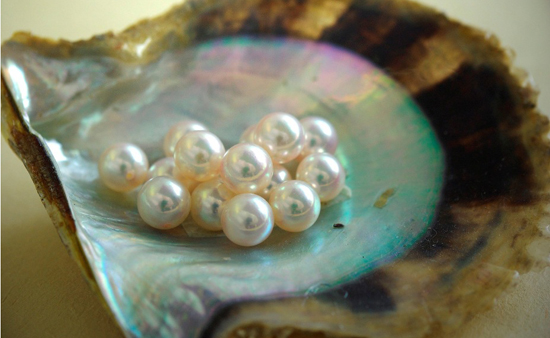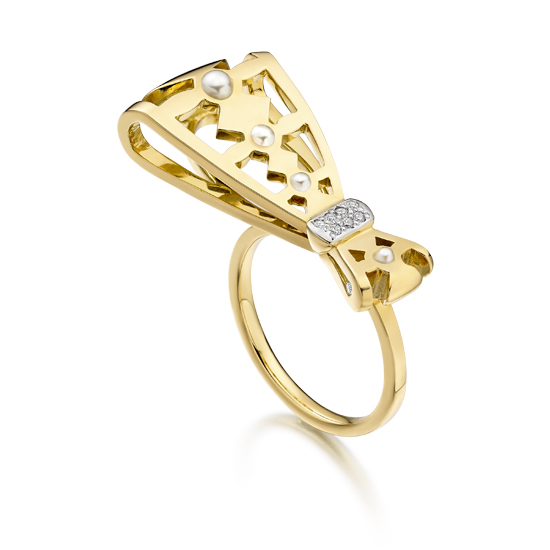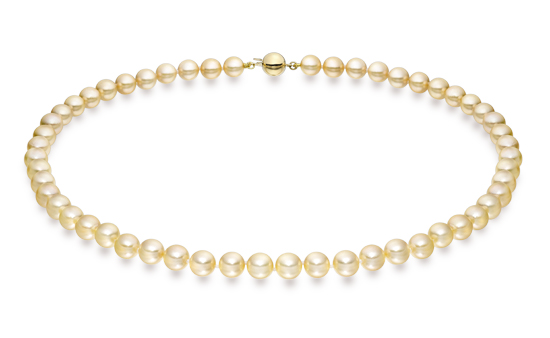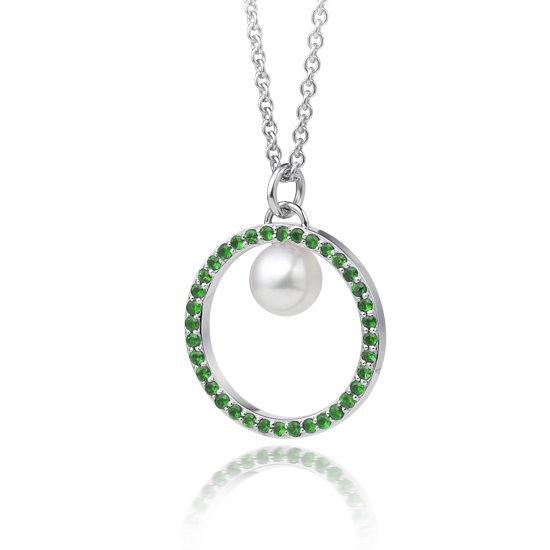
What are Japanese Akoya Pearls?
Since the first successful attempts to culture an Akoya pearl over a century ago, Akoya pearls are considered to be one of the most dazzling types of pearls available.
These saltwater pearls are cultured in the Pinctada fucata oyster, which is historically farmed in Japanese coastal waters. Other regions that are known for culturing Akoya pearls include China and Vietnam.

The oyster itself is small in comparison to other species and typically produces just one pearl of between 3mm and 10mm in diameter in each individual oyster.
Seed pearls are tiny pearls smaller than 3mm that are also produced in this oyster as a by-product of pearl culturing. These tiny gems give a delicate finish to jewellery as seen the Beau Seed Pearl and Diamond Ring by designer Alice Cicolini below.

Due to increasing levels of water pollution, Akoya pearls larger than 9.5mm of good quality are rarely cultured today and command increasingly high values compared to pearls that are more than 0.5mm smaller in diameter.
The proportion of round pearls produced by the Akoya oyster is relatively high and their near perfect shape has been an emblem of their quality together with their characteristic white colour.
Although at first glance, Akoya pearls may appear white, they often have overtones of pink, cream, silver and blue. Occasionally the pearls may have a rich cream to golden colour such those in the golden Akoya pearl necklace below.

The classic pink overtone is usually as a result of a traditional dye treatment by Japanese farmers called 'pinking'. Akoya pearls never come in dark hues that are typical of Tahitian pearls and black Akoya pearls are always the result of colour treatments.
Their size, lustre and colour mean that Akoya pearls are very well suited to making classic designs of Akoya pearl necklaces, bracelets, pendants, rings and Akoya pearl earrings.
A jewellery box staple is the Akoya pearl jewellery set, worn as every day attire, a wedding or an evening occasion.
Reinventing itself, the beloved Akoya pearl is also favored by designers in contemporary designs such as this Tsavorite Garnet and Akoya pearl pendant by designer Sophie Breitmeyer, where the classic round qualities of the lustrous pearl is contrasted with the more colourful modern gemstone.

If you would like to learn more about pearls, and what you should look for, read our Buying Pearls guide here.
Image Credits:
Copyright of Winterson

